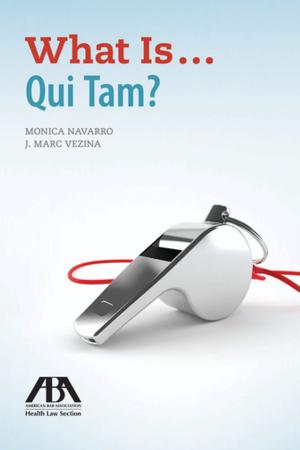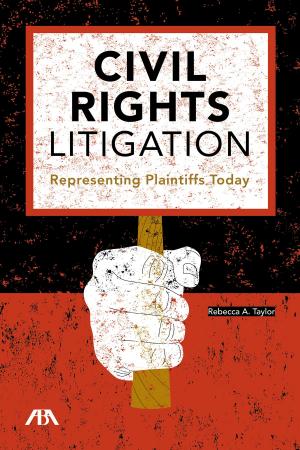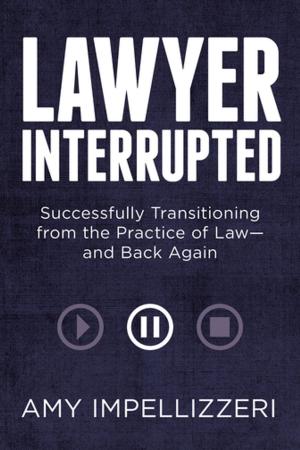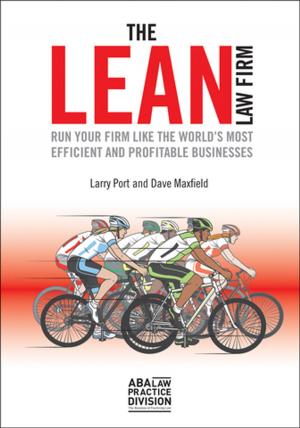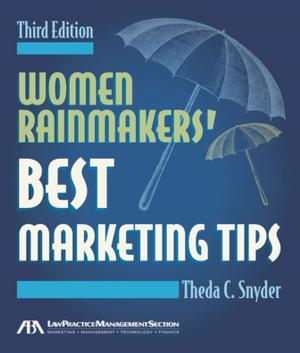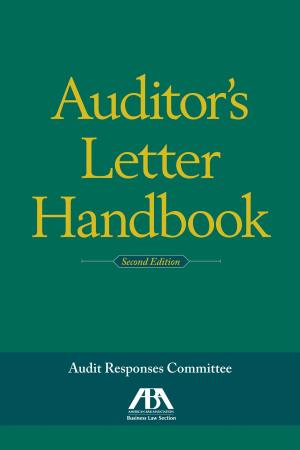How to Succeed as a Trial Lawyer
Nonfiction, Reference & Language, Law, Trial Practice, Civil Procedure, Courts| Author: | Stewart Del Edelstein ED | ISBN: | 9781634256933 |
| Publisher: | American Bar Association | Publication: | October 1, 2017 |
| Imprint: | American Bar Association | Language: | English |
| Author: | Stewart Del Edelstein ED |
| ISBN: | 9781634256933 |
| Publisher: | American Bar Association |
| Publication: | October 1, 2017 |
| Imprint: | American Bar Association |
| Language: | English |
How to Succeed as a Trial Lawyer, Second Edition is a compendium of essentially every aspect of the civil litigation process and then some, told with humor and erudition. This book does not purport to be an academic treatment of the subject. Instead, it provides practical pointers on everything from dealing with clients and adversaries to managing ethical dilemmas to marketing one’s practice and learning how to avoid alienating prospective clients at the next fund-raising dinner. The section on effective deposition-taking is a first-rate primer on that subject. Taken as a whole, the book provides a comprehensive checklist and how-to guide for civil litigators. This book is equivalent to having a sophisticated and accomplished trial lawyer in the family who is willing to take the time to share the fruits of his long experience and savvy insight on everything that matters in the civil litigation process.
Two themes permeate this book. First, in the Edelstein view of the litigation process, less is almost always more. As noted, briefs should be edited to the point of gem-like brilliance. Significantly, the cogency that underlies the most effective briefs also informs other key aspects of the litigation process, from determining the necessary scope of discovery to sifting through the claims to present in a complaint or to pursue at trial. Second, every trial lawyer needs to identify the themes that will advance the client’s cause and make certain that every litigation judgment is consistent with those themes. Following the precepts of this book will maximize every client’s opportunity for success while minimizing the needless costs and expense that have given the contemporary litigation process such a bad reputation.
Litigation is a challenging vocation. It demands not only intellectual ability but attention to detail, perseverance, creative problem-solving, persuasiveness, focus, integrity, and the ability to press the client’s position with enthusiasm while maintaining sufficient detachment to provide the objective, independent advice the client requires. How to Succeed as a Trial Lawyer, Second Edition is an invaluable guide to each of these requirements and more.
How to Succeed as a Trial Lawyer, Second Edition is a compendium of essentially every aspect of the civil litigation process and then some, told with humor and erudition. This book does not purport to be an academic treatment of the subject. Instead, it provides practical pointers on everything from dealing with clients and adversaries to managing ethical dilemmas to marketing one’s practice and learning how to avoid alienating prospective clients at the next fund-raising dinner. The section on effective deposition-taking is a first-rate primer on that subject. Taken as a whole, the book provides a comprehensive checklist and how-to guide for civil litigators. This book is equivalent to having a sophisticated and accomplished trial lawyer in the family who is willing to take the time to share the fruits of his long experience and savvy insight on everything that matters in the civil litigation process.
Two themes permeate this book. First, in the Edelstein view of the litigation process, less is almost always more. As noted, briefs should be edited to the point of gem-like brilliance. Significantly, the cogency that underlies the most effective briefs also informs other key aspects of the litigation process, from determining the necessary scope of discovery to sifting through the claims to present in a complaint or to pursue at trial. Second, every trial lawyer needs to identify the themes that will advance the client’s cause and make certain that every litigation judgment is consistent with those themes. Following the precepts of this book will maximize every client’s opportunity for success while minimizing the needless costs and expense that have given the contemporary litigation process such a bad reputation.
Litigation is a challenging vocation. It demands not only intellectual ability but attention to detail, perseverance, creative problem-solving, persuasiveness, focus, integrity, and the ability to press the client’s position with enthusiasm while maintaining sufficient detachment to provide the objective, independent advice the client requires. How to Succeed as a Trial Lawyer, Second Edition is an invaluable guide to each of these requirements and more.

